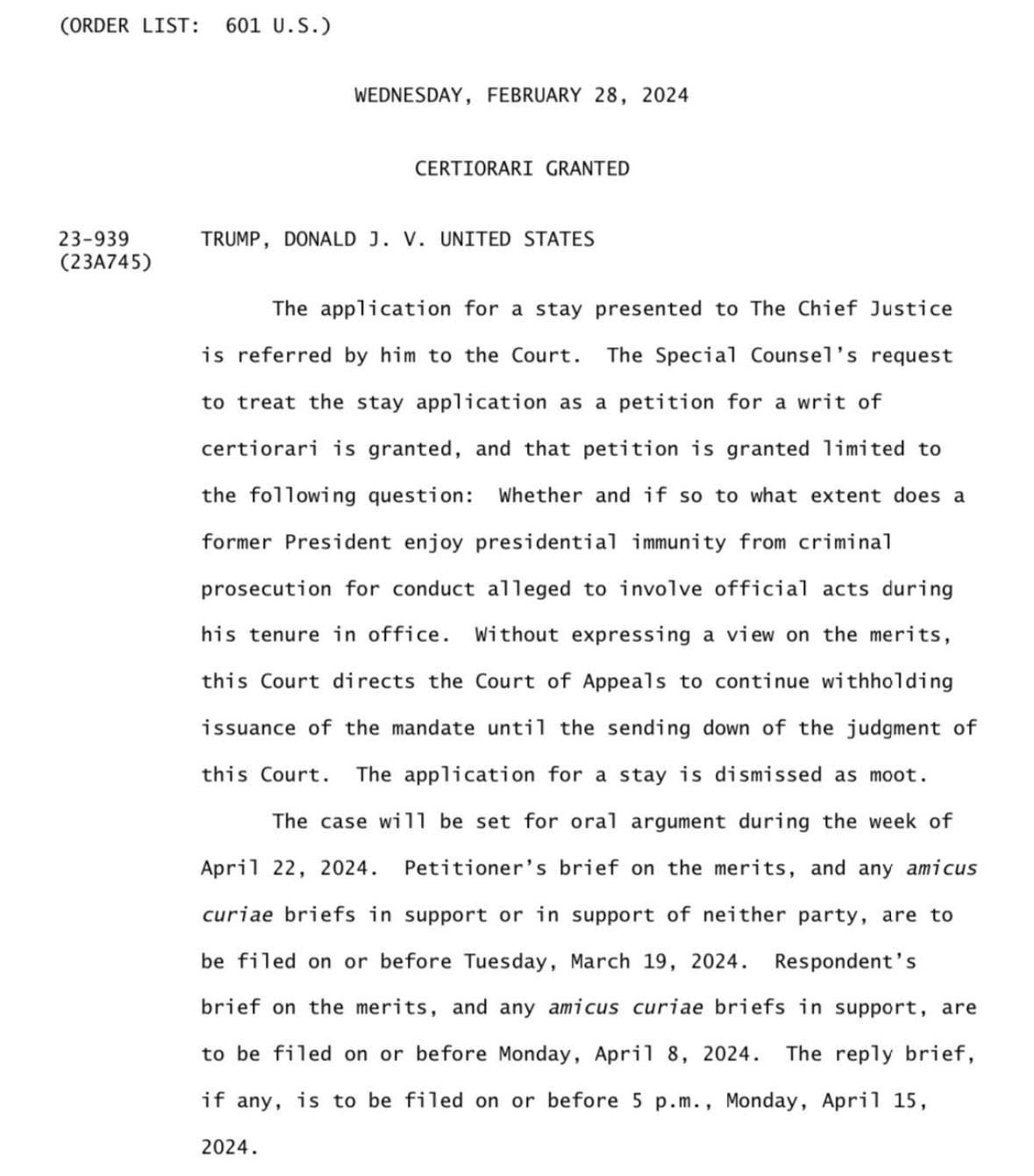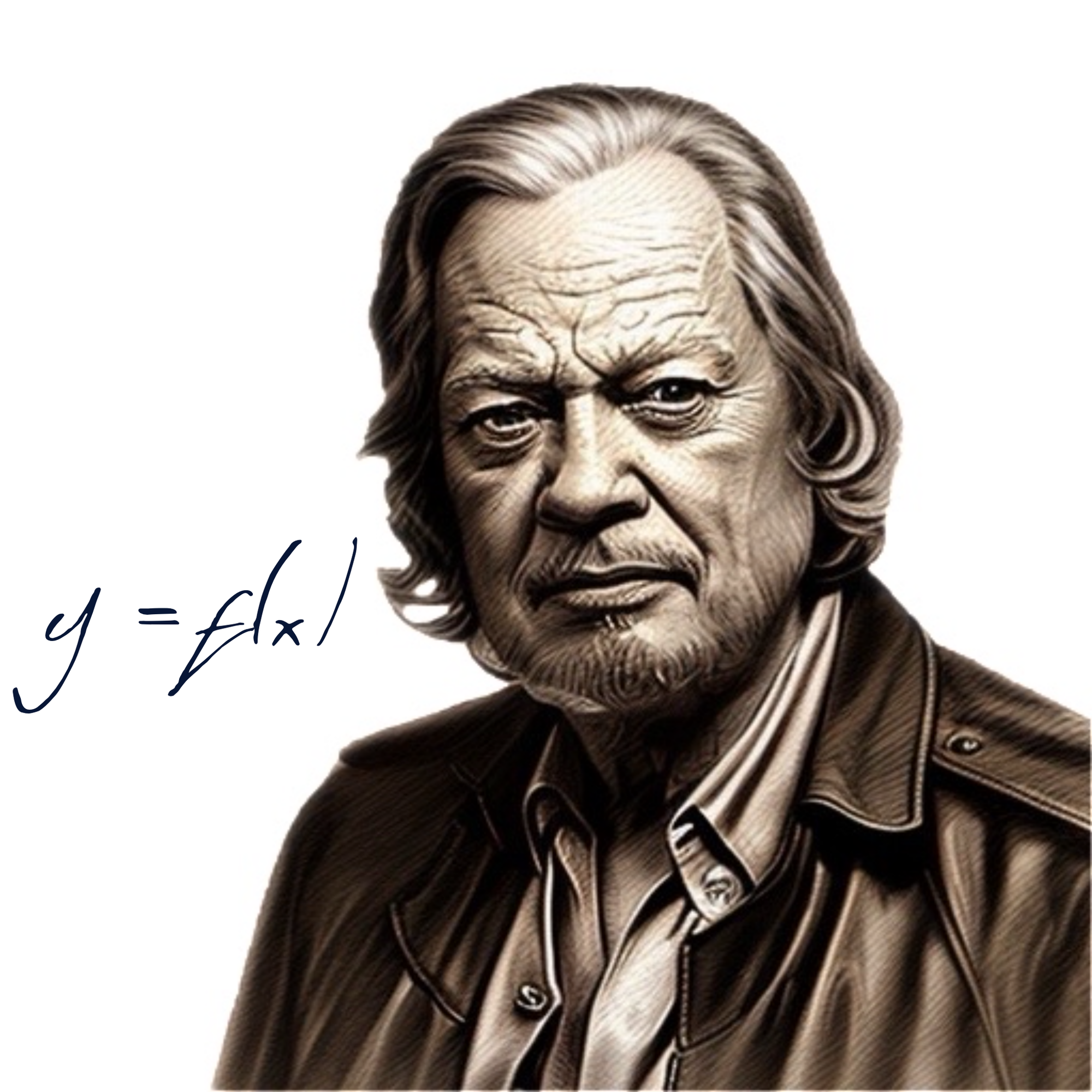Table of Contents
The most banal looking piece of lawyerly boiler plate can disguise a lot of drama.

Reaction
Politically, it's exactly what you'd expect. The legal commentary that I've seen was pretty harsh, along the lines of
… it was bad enough that they agreed to hear the petition for the stay in the first place, but they should have turned it down without comment before this—agreeing to have this briefed and argument? This 'effing joke of a case!!!
The only process comment that was at all approving was by Elle Honig who thinks that it was important to both hear it and not rush things.
I’m all for SCOTUS taking the time it needs to properly decide a case, and that shouldn’t vary based on the election calendar. I am not for them reaching into a case to address a theoretically interesting point that isn’t necessary to decide the case. Yes, on the one hand, we don’t want alternate administrations prosecuting their predecessors and on the other hand we don’t want to place former presidents above the law. Somewhere in between is a line to be drawn.
Trump v. United States is not the place to draw that line. The opposing positions are; the alleged acts were not official acts (according to the prosecution, although the get-DOJ-say-“fraud” allegation might be arguable) vs. “even domestic political assassination” is immune, according to Trump. That’s the case or controversy before the court, not one in which it might be a closer call, say war crimes.
Because this is an interlocutory appeal, there is no factual record before the Court. The settled rule is that the allegations in the indictment are taken as true. Crafting a balancing test doctrine on a fact-free record is nothing that the Court should even think about doing.
The only principled rationale is to address the DC panel’s threshold jurisdictional holding. The Article III courts are established by Congress, not the Constitution. Congress has expressly prohibited this kind of “collateral order” pre-judgment appeal, but the Supreme Court created a narrow exception that covers the case of official misconduct. Over the past 75 years, this process exception has been conjured out of the penumbrae and emanations to create a substantive due process right “not to be tried,” meaning a former official doesn’t have to wait until a final judgment to take an appeal. This has happened mainly in the DC circuit (because that’s where most of the alleged conduct occurs) and they have treated Supreme Court dicta in a case called Midland Asphalt, suggesting that the doctrine should be applied rarely and strictly, somewhat cavalierly.
The Court might want to rap the knuckles of the DC circuit and rein in application of the collateral order doctrine back to something more consistent with Midland Asphalt strictly applied. That would lead to a holding that there was no right to an interlocutory appeal in the first place and sending it back for trial. That salves what might be seen as a running sore and allows a full factual record with which to work should the case come back post-conviction.
When it is not necessary to make a decision, it is necessary not to make a decision. Lucius Cary, 2nd Viscount Falkland (attrib.)
Mascot of the Day









